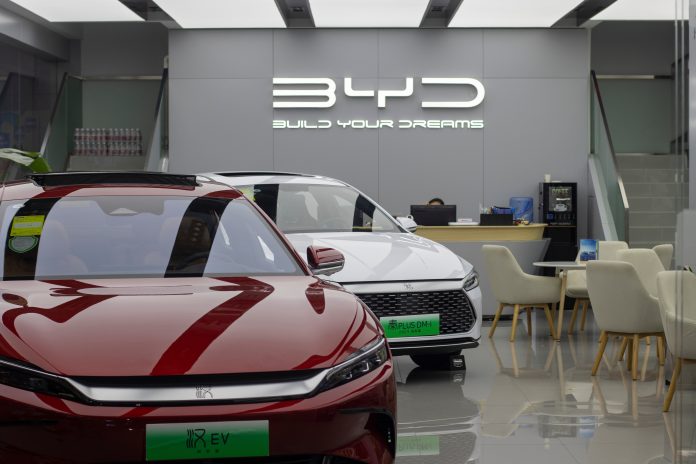In a significant leap forward, over half of all vehicles sold in China in July were new energy vehicles (NEVs), which include both pure electric vehicles (EVs) and plug-in hybrids, according to the China Passenger Car Association (CPCA). NEV sales surged 37% compared to the same period last year, marking a record 50.7% of total car sales. This milestone highlights China’s rapid advancement in EV adoption, leaving Western markets, like the United States, where EV and hybrid sales only accounted for 18% of total vehicle sales in the first quarter of 2024, trailing behind.
China’s remarkable growth in NEVs results from heavy investments in its EV supply chains, enabling domestic brands like BYD and Li Auto to set fresh monthly sales records in July. Despite the surge in NEV sales, overall domestic car sales fell 3.1%, extending a four-month decline as consumer confidence remains weak amid economic challenges, including a prolonged property market crisis.
In response to the slowdown in the auto market, China’s state planning agency announced in late July that cash subsidies for vehicle purchases would be doubled, up to approximately $2,785 per purchase, retroactive to April when the subsidies were first introduced. Additionally, cities with restrictions on car purchases, like Beijing, are relaxing these limits to boost NEV sales, with Beijing expanding its NEV license quota by 20,000 units, the first such easing since 2011.
The intense price war among domestic brands, which saw significant discounts and competition on newer models, also shows signs of stabilization. BYD, China’s leading EV firm, continued offering discounts in July, though less aggressively than in the first half of the year, with a price reduction of up to 17.3% on its hybrid SUV BAO 5. Meanwhile, vehicle exports in July rose 20% year-on-year, although slower than June’s 28% increase, as Chinese-made EVs prepare for potential EU tariffs.



